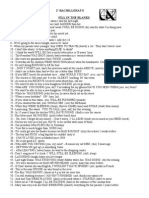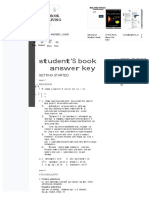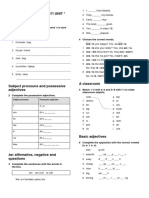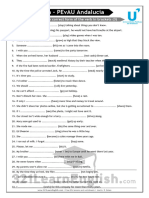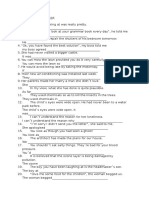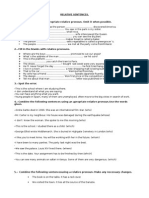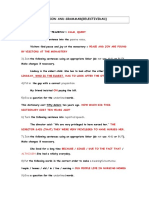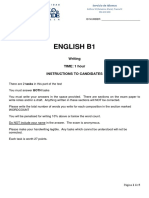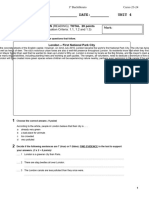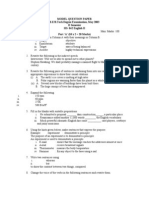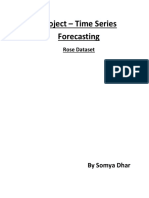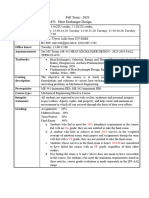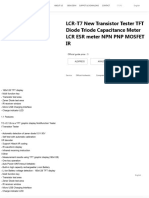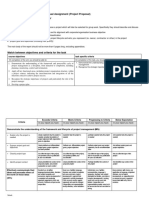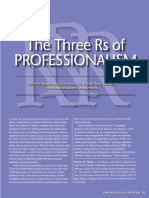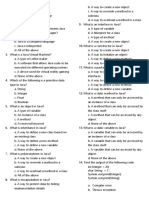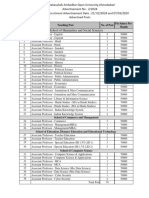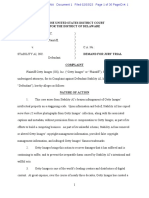0% found this document useful (0 votes)
668 views6 pagesEvaluación de Bachillerato para El Acceso A La Universidad (Ebau)
1. Scientists have created a new super-enzyme that can degrade plastic bottles six times faster than previous enzymes.
2. The super-enzyme was created by linking two enzymes found in plastic-eating bacteria. When combined, the enzymes worked much faster at breaking down plastic than individually.
3. The researchers are now examining how to further increase the speed of plastic breakdown by altering the enzymes. They hope to have the super-enzyme ready for commercial recycling within a year or two.
Uploaded by
Andrea Santana SantanaCopyright
© © All Rights Reserved
We take content rights seriously. If you suspect this is your content, claim it here.
Available Formats
Download as PDF, TXT or read online on Scribd
0% found this document useful (0 votes)
668 views6 pagesEvaluación de Bachillerato para El Acceso A La Universidad (Ebau)
1. Scientists have created a new super-enzyme that can degrade plastic bottles six times faster than previous enzymes.
2. The super-enzyme was created by linking two enzymes found in plastic-eating bacteria. When combined, the enzymes worked much faster at breaking down plastic than individually.
3. The researchers are now examining how to further increase the speed of plastic breakdown by altering the enzymes. They hope to have the super-enzyme ready for commercial recycling within a year or two.
Uploaded by
Andrea Santana SantanaCopyright
© © All Rights Reserved
We take content rights seriously. If you suspect this is your content, claim it here.
Available Formats
Download as PDF, TXT or read online on Scribd
/ 6

